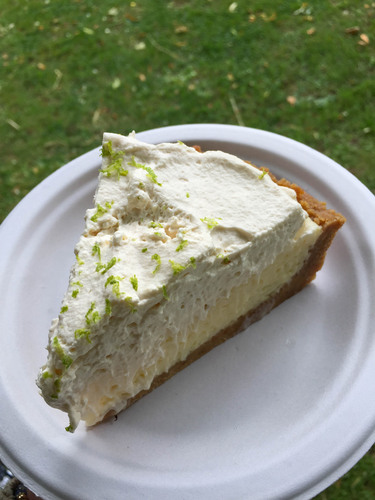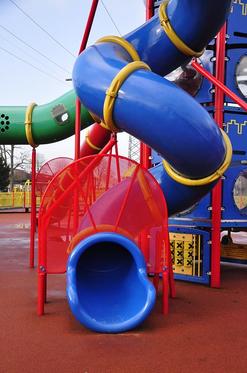First, a wee bit of background: I am a fixer. If there is a problem or a conundrum, I love to untangle it and set it to rights. I like to say that undoing tangles is my magic (seriously, if you have a tangled chain from your jewelry box bring it on over). This desire is undoubtedly a huge part of what pushed me to join AmeriCorps after college. And so I went to work at the Cherokee Heritage Center--where I was served my first slice of humble pie. And rightly so.
And they were right. They were 100% absolutely unfailingly correct. Everything that I knew up to that point I had read in a book. I could stand up and correctly point out overt injustices, but I was blind to cultural insensitivity and the way the system had been set up to disenfranchise a whole nation of people.
So that was my first lesson in the difference between wanting to help and actually helping.
Now let me tell you that we were the only white family on the block.
It took a good long while for people to get comfortable with us--understandably. We were other. We were the physical manifestation of the oppressors. But once I had a friend on the block who was open and honest with me, I was set down once again and gently explained how it feels to send your kids into a world that is openly hostile to them. The same world that would throw open it's doors for my white kids had placed a guard out front to deter her kids.
And again, I am a fixer. I want to help. But I know better than to stand on a chair and start yelling out directions.
When Michael Brown was killed in Ferguson, someone (if you know who let me know!) suggested that I take my Twitter account, unfollow a bunch of cishet white dudes and replace them with people of color. I suggest ALL OF YOU GO DO THIS RIGHT NOW. It was through this choice that I was able to hear the voices of the people who live under the unfair social rules that us white folk don't think about. And it was through the amazingness that is Feminista Jones (@feministajones) that I learned my latest lesson. She said the first question you should ask when reaching out to people is: Do you need help?
(But wait! There's more!)
If the people say, "Yes! We need help!" Then you ask, "What kind of help do you need?"
Because the long and short of it is:
People who are in the middle of the chaos know what they need most right now.
To think or act otherwise is removing the power from and infantilizing the people you are trying to help. That's the opposite of helping.
So take a deep breath and say it with me:
Do you need help?
What kind of help do you need?




 RSS Feed
RSS Feed